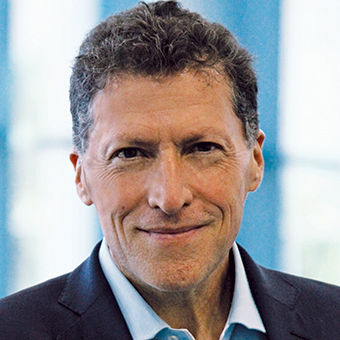Political polarity at the poles
A couple from Washington told me they recently enjoyed an Antarctic cruise on the National Geographic Resolution, but one thing surprised them: Climate change was not raised by naturalists during the onboard lectures.
They approached one of the ship’s officers to ask why and were told the topic was too controversial and had led to heated arguments in the bar. So, the topic was avoided.
What surprised me most was that it happened aboard the Resolution, which is marketed and operated by Lindblad Expeditions. Lindblad’s marketing partner, National Geographic, has certainly never shied away from the topic, and I know that Lindblad CEO Sven Lindblad is a longtime, dedicated, full-throated environmentalist.
I reached out to Lindblad to ask about it; we set up a video call.
Climate change had certainly been freely discussed during cruises I had taken both north with Ponant and south with Silversea. While waiting to speak with Lindblad, I wrote to some other lines, inquiring about their experiences and policies.
Jason Flesher, director of discovery operations for Scenic Luxury Cruises and Tours, called me in response. “We always interject climate into our talks and excursions,” he said, though acknowledging that Scenic had recently received a complaint. “There’s always a mixture of some who care and some who don’t, but these were our first naysayers.”
As for Scenic’s general approach, “We design lectures not for naysayers but for those uneducated about climate,” Flesher said. “They’re designed to introduce the topic, draw you in and then engage. But we never hit hard. People are at different levels of belief.”
Hurtigruten Group’s chief scientist, Verena Meraldi, responded that, “We believe climate change is a topic that should never be avoided but instead informed, cultivated and discussed openly. It is a topic that should be included in as many lectures as possible — about ecosystems, marine mammals, birds, ice, etc.”
Chief marketing officer Hayley Peacock-Gower of Aurora Expeditions wrote that “a crucial part of our work is our focus on educating passengers and sharing the realities of the climate challenges the planet is facing so that they leave our expeditions with a deeper knowledge and understanding than when they stepped aboard. Aurora Expeditions is on a mission to not only participate in climate change initiatives but lead them.”
Although Viking’s executive vice president for marketing, Richard Marnell, didn’t specifically address onboard programming, he responded that the line “encourages the development of environmental policies based on scientific facts and analysis” and pointed to Viking’s efforts to reduce carbon emissions on its ships.
When I spoke to Lindblad, he said that “everyone who works on the ships cares deeply about these issues. We have different ways to deal with the subject but do it in a way where we’re not likely to offend people. You can find creative ways to have a conversation around climate change, which is valuable. You can show how glaciers are receding over time. But if you preach or cross a certain line, it does damage, because people say, ‘I’m on holiday. I don’t want to be lectured.’
His staff, he said, understands “it’s a delicate balance. There are times when they really engage in the conversation, but they’re smart about how to do it, and it’s a positive thing. And we’ve had experiences where some have ventured into that territory, and it’s been negative.”
His understanding of how to approach the topic changed, he said, after the U.S. withdrew from the Paris climate accords and he wrote a letter to customers expressing dismay about that.
“It was not political,” he said. “I just said that, in my view, we should keep a seat at the table and be part of the conversation.”
He received an enormous response. “Many hundreds. The negatives and positives were about equal, though I think people reacting against something tend to write more than those who agree. Some of it was vitriolic.”
His takeaway was that it was better to illuminate issues based on facts and hope that people migrate to better conclusions.
“It’s stunning how easily people are triggered and get really angry,” he said. “I think the key issue we face is this polarization, which prevents us as a nation from really tackling serious issues.”
Indeed. Note that the headline on this column references “political polarity,” not “scientific controversy.” The science is what it is, and presenting it straightforwardly leads to certain conclusions, all the more convincingly in the fragile ecosystems where expedition ships sail. (I have written before about how discussions on visits to polar regions can, without preaching, help inform viewpoints.)
The tenor of the discussion onboard ships and naturalists’ ability to educate may ultimately reflect a line’s source market and lecturers’ ability to “read the room.” In any case, just as the U.S. needs a seat at the Paris accords, the topic of climate change needs a seat onboard all expedition cruises.
Source: Read Full Article




